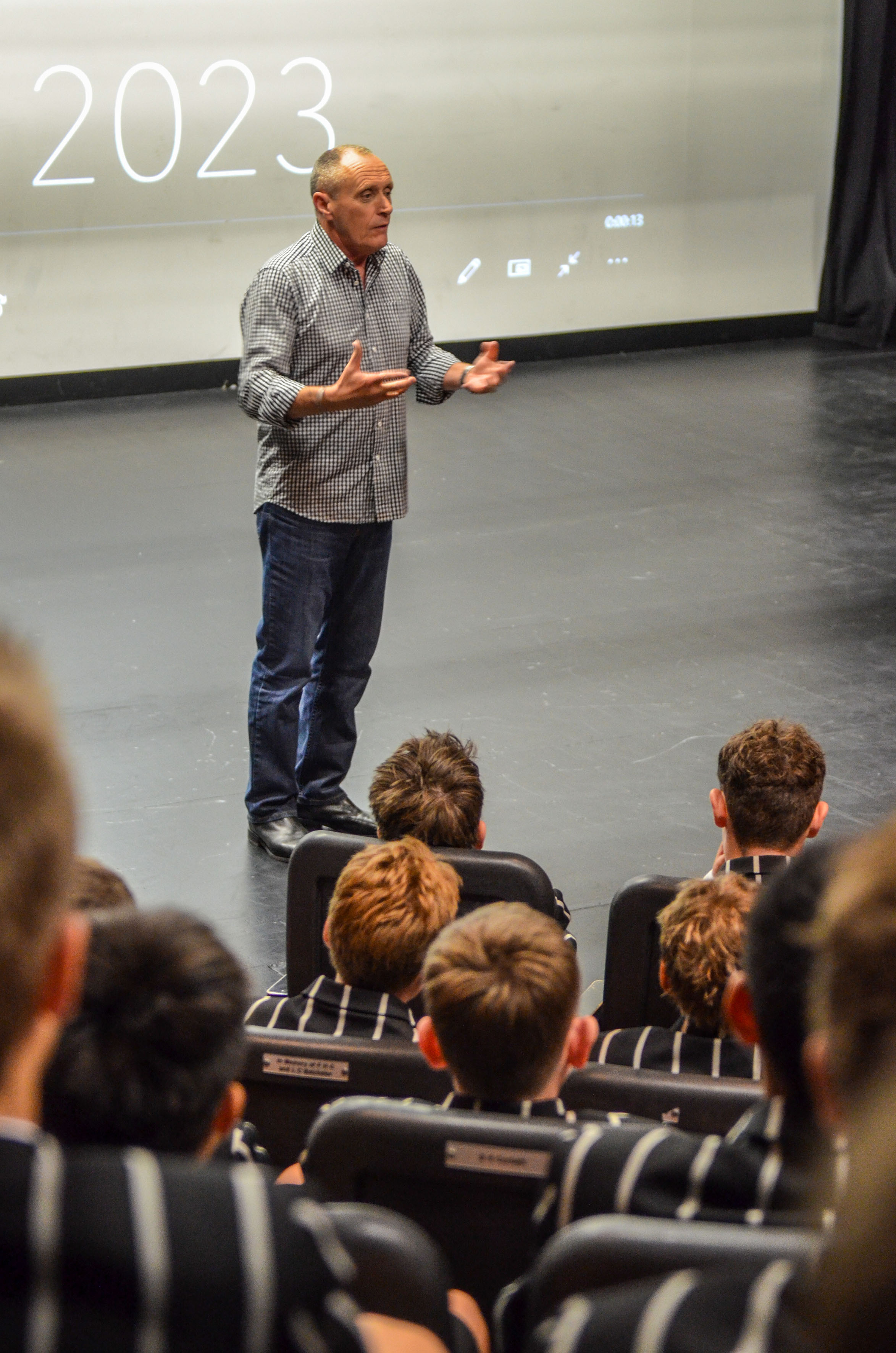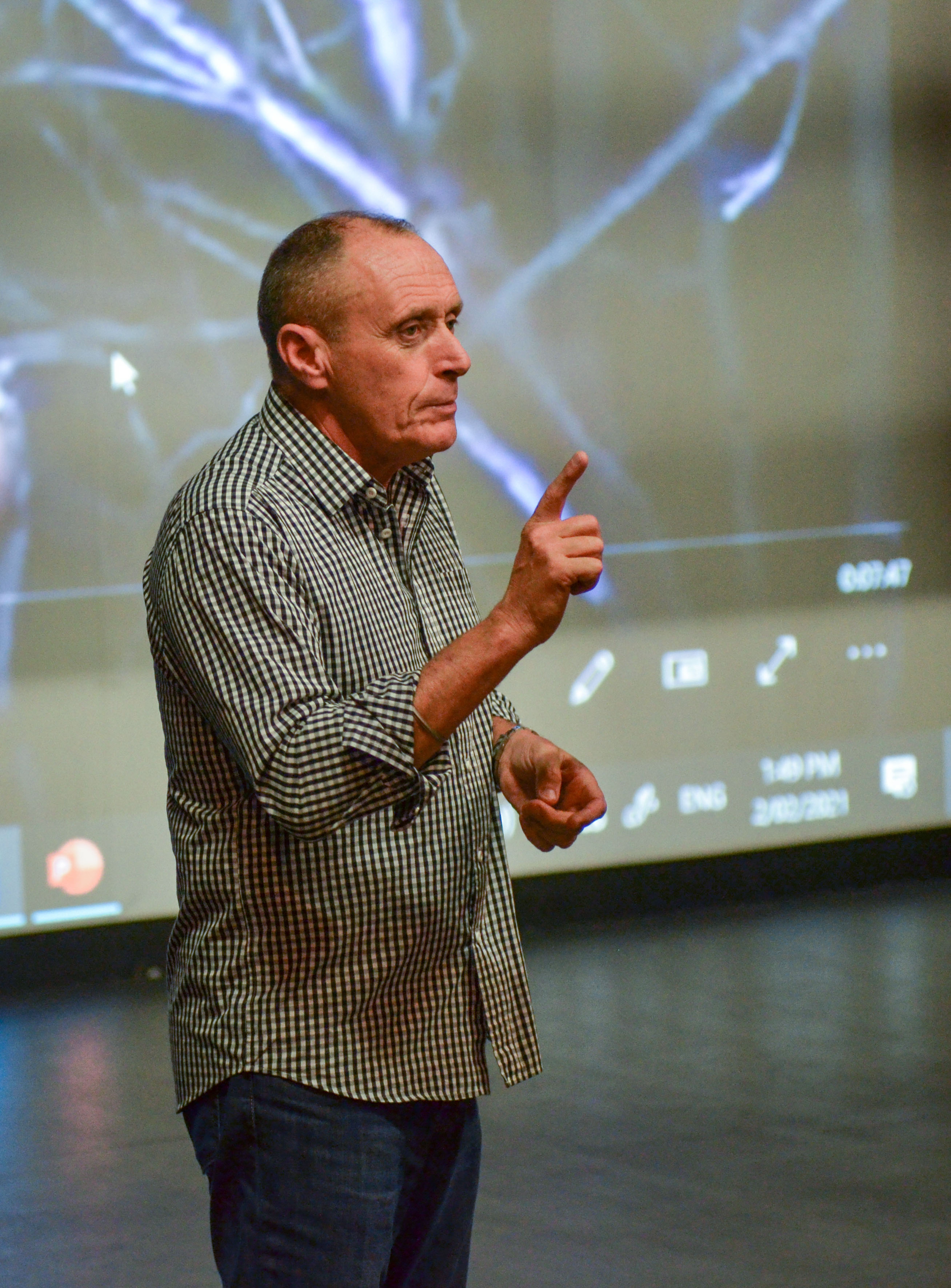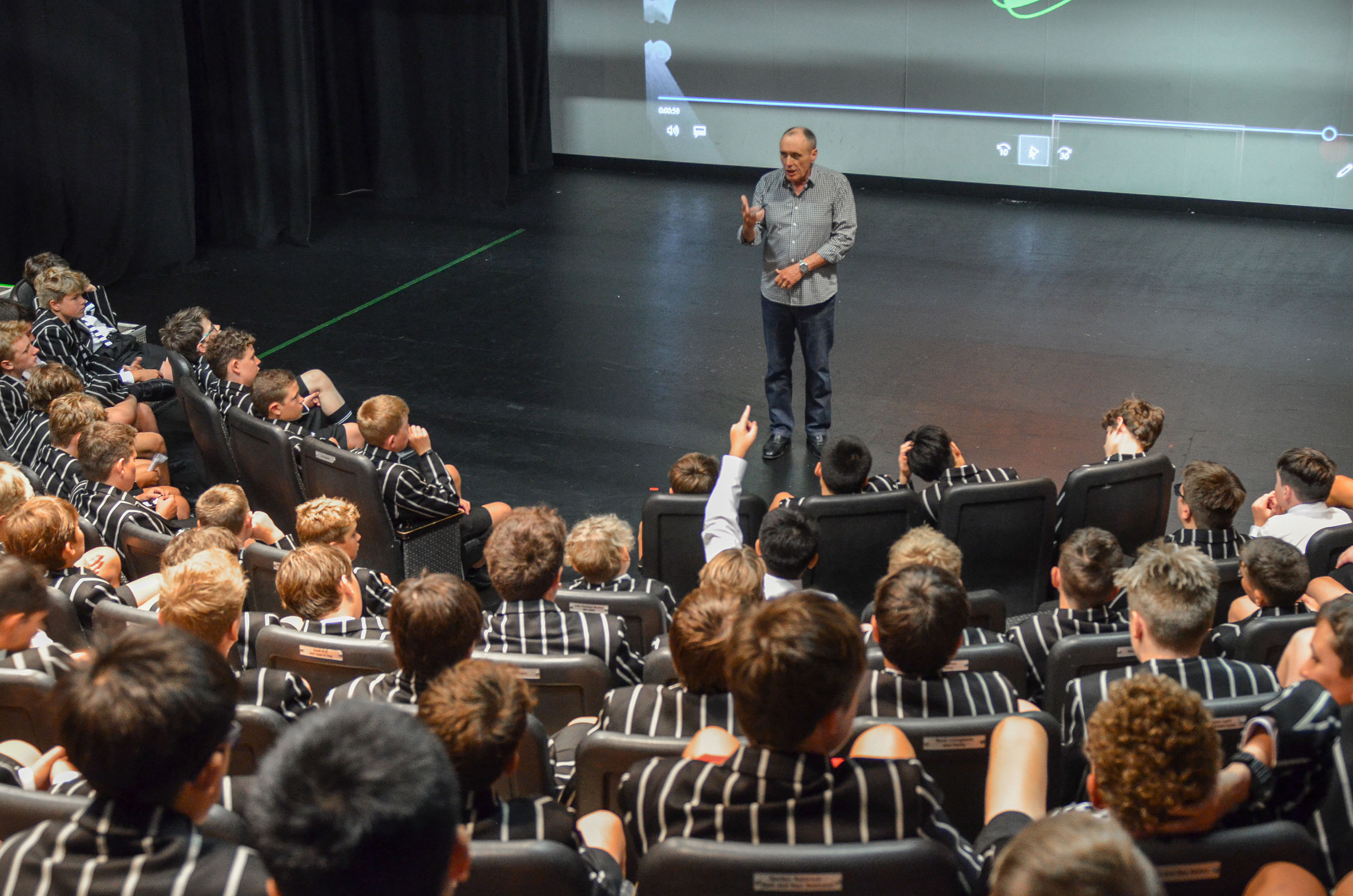You’re unique, valued and loved
03 Feb 2021
How do you keep safe in a digital world?
By deliberately building an identity on the internet that is an asset for you.
That was among the gems of advice from Cyber Safety and Risk Assessment Consultant John Parsons who spoke to College students this week.
A published author and social commentator he works with individuals, and young people who have become ensnared by predatory adults across digital networks, those who have been cyber abused and victims of sexting. John told the boys he wasn’t judging them but wanted to ensure they knew they had an identity that was valuable to themselves and to other people.
“You are loved, you are unique and you need to value yourself,” he said.
Real life situations differed markedly from online communications, some of which resulted in situations of blackmail and sextortion, he said.
“In real life we are constantly evaluating people we meet. It’s in our DNA to help us identify risks. It helps prepare us for life, and we learn to listen, and to feel compassion and empathy.”
But online we can quickly become vulnerable, trusting indiscriminately, and unwary of the ramifications of what we may say or the behaviours we may exhibit.
“Technology is a tool – don’t let it consume you. There is a loss to only communicating online; we have to keep connected to the world and we can do so through sport, and activities, to communicating with others, to smelling and hearing. You can’t cry online – its two dimensional. We need to build an identity deliberately that’s an asset on the internet. You need to project who you are online in a way that’s beneficial to you,” he told his audience.
John said the things we say, how we treat each other, how we conduct ourselves and how we feel about ourselves all contribute to our identity. He urged the boys to choose their friends carefully, and to opt into clusters with shared character strengths, which were positive, full of people who looked out for and after each other, rather than groups which were anti-social and negative.
“Be guided by your family and school values and they’ll keep you safe. Don’t let the group determine the behaviours you make.”
Family, friends and community were the three categories within which we developed our character strengths and which provided us with our greatest support, he said.
“Build an identity which works for you, not against you. And my challenge is that when you get a chance to show compassion for someone, don’t miss it; it’s a strength, not a weakness.”
|


